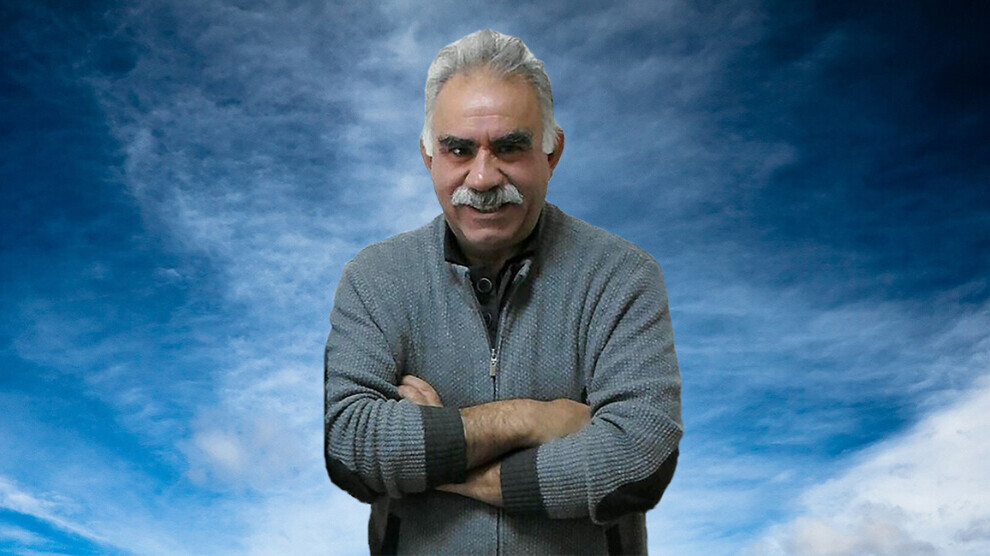Lawyer Sarıca: Repression in Imrali is an attack on Abdullah Öcalan
Lawyer Rezan Sarıca said that the increasing repression in Imrali must be viewed as an attack on Abdullah Öcalan.
Lawyer Rezan Sarıca said that the increasing repression in Imrali must be viewed as an attack on Abdullah Öcalan.

The Kurdish People's leader, Abdullah Öcalan, has been in solitary confinement on the prison island of Imrali since 1999. Over the past three years, Öcalan's isolation has been pushed to the level of total incommunicado imprisonment. There hasn’t been any sign of life from him for months. His lawyer Rezan Sarıca from the Asrin Lawyers' Office spoke to ANF of an attack on Öcalan that is both physical and on his psyche, with the aim of breaking him, the Kurdish representative and political thinker. Sarıca also said that the Turkish state has been trying to do this for decades but has always failed.
Sarıca emphasized that the Imrali system must be viewed holistically. “It is a complex of disciplinary committee, control committee, enforcement committee, public prosecutor's office and enforcement court, which constantly imposes new punishments on Öcalan. Behind this is the state, which does not consider the death penalty commuted to life imprisonment to be sufficient. Every moment of captivity is meant to be torture. That is the policy that is being pursued.”
Five visits to a lawyer in twelve years
Sarıca pointed out that family and lawyer visits were continuously illegally hindered until 2011 and were never regularly permitted. “From 2011 to today, that is, in the past twelve years, five lawyer meetings took place. The prisoners' relatives have only been able to make five visits to Imrali in the last nine years. Disciplinary sanctions were repeatedly imposed. I would also like to point out that disciplinary sanctions were imposed during these five visits. In the last 25 years, our client has only been able to have two short phone calls with his brother. It was never possible to have a telephone conversation with his lawyers. When family visits took place, he was not allowed to speak Kurdish. Many newspapers were banned, and some were handed out so heavily censored that they were unreadable. Disciplinary sanctions were imposed to prevent telephone calls and letter correspondence, but insulting and threatening letters were handed to him. Access to many books was also prevented. Even books that contained texts that Abdullah Öcalan himself wrote in his lawsuit before the European Court of Human Rights were not handed over to him due to a ban by the Control Commission. He was denied access to television for the first 14 years, after which the channels were restricted. Even a single-channel radio was repeatedly taken away from him under various pretexts and not returned for long periods of time.”
“Great risk of attacks”
Warning that this system of repression inevitably causes physical and psychological harm to people, Sarıca stated: “For an imprisoned person, social bonds are absolutely vital. These are made by family members, lawyers and, where the law allows, relatives, friends or other visitors. These connections to life must also be able to be maintained through telephone and written communication. The availability of visual, auditory and written communication channels to the outside world is crucial. However, for Mr. Abdullah Öcalan, all of these rights have been systematically restricted or completely blocked. But maintaining contact with the outside world plays a crucial role in protecting the prisoner against poor and inhumane treatment or punishment. If this cannot be guaranteed, then there is the greatest risk of being exposed to any kind of mistreatment. In Imrali, this form of punishment, which has been ongoing and increasing for 25 years, aims to restrict Abdullah Öcalan on a physical, social, psychological, spiritual and mental level. The aim is to physically and mentally drain Abdullah Öcalan and thus to subjugate him mentally. All these punishments should be viewed in their humanitarian and political dimensions and understood as an attack on his ability to think, speak and develop ideas.”